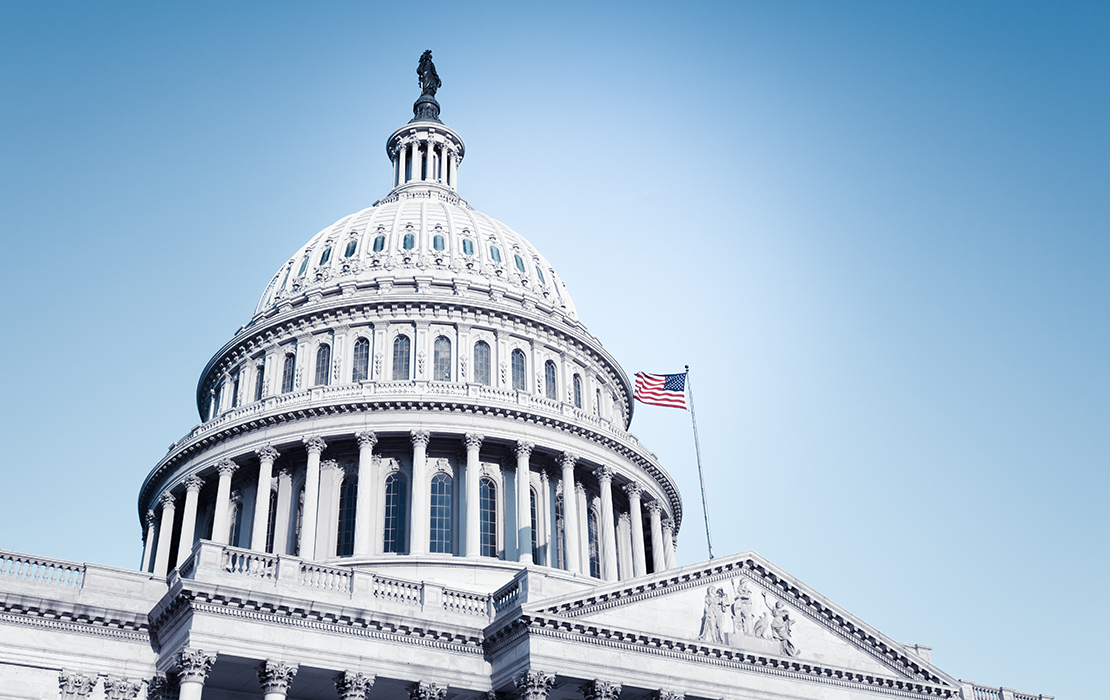States allowed to include adult dental benefits in 2027 EHB-benchmark plans
CMS removes prohibition on adult dental benefits as essential health benefits

In a significant regulatory move, the Centers for Medicare & Medicaid Services has outlined a path to allow states to incorporate routine adult dental benefits as an essential health benefit, or EHB. The decision comes after a review of extensive stakeholder feedback, including from the ADA, and aims to help address longstanding gaps in oral healthcare coverage for adults across the nation.
The move is part of the U.S. Department of Health and Human Services’ 2025 Notice of Benefit and Payment Parameters final rule, which aims to simplify pathways for low-income people to enroll in coverage and gives states the ability to increase access to routine adult dental services.
EHBs are a set of 10 categories of services health insurance plans must cover under the Affordable Care Act. They include doctors’ services, inpatient and outpatient hospital care, prescription drug coverage, pregnancy and childbirth, and mental health services. Plans must already offer dental coverage for children. This category of benefits is designed to ensure that everyone who obtains health insurance through the individual or small group insurance exchanges has access to necessary health care services, regardless of their health needs.
The decision to allow adult dental benefits as an EHB comes after a reevaluation of existing regulations and interpretations of the Affordable Care Act. CMS emphasized that while routine adult dental services were traditionally not considered part of standard medical plans, they are commonly included in employer-sponsored plans, justifying their inclusion within the EHB category.
Despite suggestions from some stakeholders for the federal government to mandate the inclusion of adult dental benefits, CMS opted to leave the decision to add such services to the discretion of individual states. This move aligns with CMS' state-based approach to EHB-Benchmark Plans, providing states with the autonomy to tailor their coverage according to their needs.
The EHB-Benchmark Plan is a set of specific covered services benefits defined by each state that comprehensive individual and small group health insurance coverage must provide. Each state determines the EHB-Benchmark Plan within the EHB framework set by federal law, and a state may change its EHB-Benchmark Plan annually.
The regulation provides states with the option to include adult dental benefits in their EHB plans for qualified health plans. Unlike the pediatric dental benefit included in the original Affordable Care Act, all qualified health plans will be required to offer adult dental benefits if states choose to include them in their EHB-Benchmark Plan, even if a stand-alone dental plan is available in that state’s marketplace. This decision by CMS has far-reaching implications at the state level. States that opt to incorporate adult dental benefits into their EHB plans must ensure adherence to various regulations, including no annual limits, limited cost-sharing, out-of-pocket maximums and network adequacy standards. Additionally, medical loss ratio requirements will apply to qualified health plans offering adult dental EHB.
The ADA expressed support for the move in January, citing longstanding advocacy efforts to improve oral healthcare access. In a letter to CMS, the Association said there should not be any cost sharing provisions for preventive or diagnostic dental care services.
“When a [qualified health plan] with dental coverage has a shared deductible or stand-alone dental plan has a deductible, the deductible should not apply to any preventive or diagnostic dental care services,” wrote ADA President Linda J. Edgar, D.D.S., and Executive Director Raymond Cohlmia, D.D.S., in the letter, adding that there should be first-dollar coverage for all preventive or diagnostic dental care services and these services are “unfairly excluded” as coverable services for not meeting the United States Preventive Services Task Force recommendation standard.
Stacy Gardner, chair of the ADA Council on Dental Benefit Programs, highlighted the organization’s support for the rule.
“[The] ADA appreciates CMS allowing states to classify adult dental as an essential health benefit following approval of policy by 2023 House of Delegates,” she said. “However, dentists and the state dental associations must take an active role should their state elect to include adult dental benefit in their EHB-benchmark plan. Implementation must not create further burdens or confusion for dental providers or their patients.”
Addressing comments raised by stakeholders, CMS clarified various aspects, including cost-sharing measures, consumer protections and network adequacy standards. Existing consumer protections applicable to EHBs will extend to qualified health plans providing adult dental benefits. However, CMS did not standardize specific cost-sharing limitations and elected to allow states who opted to incorporate route adult dental as an EHB to choose those limitations.
Additionally, CMS emphasized the importance of network adequacy, urging states to ensure sufficient dental provider networks for enrollees. While acknowledging concerns about operational impacts and potential conflicts, CMS reiterated that states must adhere to established guidelines when updating their EHB-benchmark plans.
The rule clarifies that states will not be required to defray the costs of adding adult dental benefits to their EHB plans, offering financial relief for state-level implementation. CMS noted that dental procedures to be covered as routine adult dental services would ultimately be determined by states adding this benefit to their EHB-benchmark plan.
According to CMS, states seeking to include routine adult dental services as part of their EHB-benchmark plans must adhere to specific timelines and procedures. The earliest opportunity for states to initiate this process is through the calendar year 2025 submission cycle, with applications due to CMS on or before May 7, 2025, for implementation that would begin in plan year 2027.
For more information on adult dental and essential health benefits, visit the ADA's webpage.



